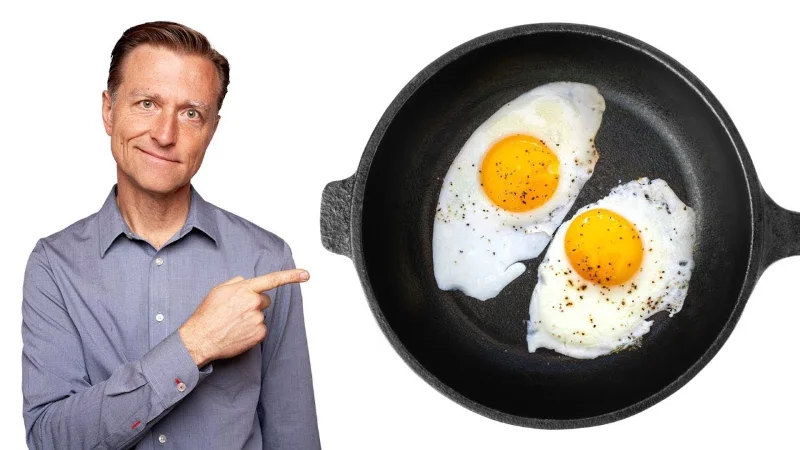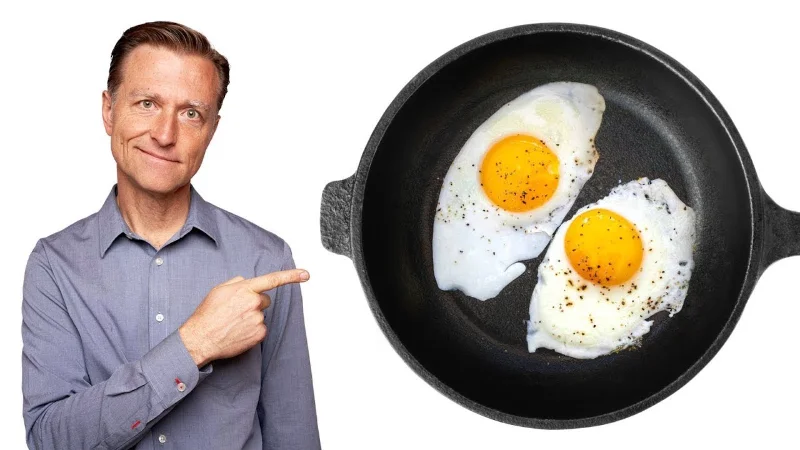2. Eating cholesterol affects different people, well, differently.

Egg yolks are indeed high in cholesterol, with one large egg containing about 186 mg. However, before excluding eggs from your diet, it's worth considering the USDA's nutritional guidelines. Research shows that for around 70% of people, eggs have little to no impact on cholesterol levels. Experts explain that high-cholesterol foods don't necessarily lead to higher blood cholesterol. In fact, for 30% of people, eggs may even help reduce low-density lipoprotein (LDL) cholesterol levels. The relationship between dietary cholesterol and blood cholesterol is far more complex than previously thought. Recent studies reveal that the body's response to dietary cholesterol is highly individualized and influenced by factors such as genetics, overall diet, lifestyle, and existing health conditions. For most healthy individuals, the liver adjusts its cholesterol production based on dietary intake, maintaining stable blood cholesterol levels. This understanding has led to significant changes in dietary recommendations over the past decade, with many health organizations lifting previous restrictions on egg consumption. As with any food, moderation is key. Dr. Hong advises focusing on overall dietary patterns rather than isolating specific nutrients or foods. For those concerned about cholesterol, regular blood lipid testing and consulting healthcare professionals for personalized advice is recommended.
Advertisement
Recommended Reading: He Found a 'Puppy' in the Woods: Then the Vet Called Police
You are viewing page 3 of this article. Please continue to page 4
























Invites a case study.
Who’s benchmarking this?
Could underpin a pilot charter.
This begs iteration cycles.
Curious: seasonal variations?